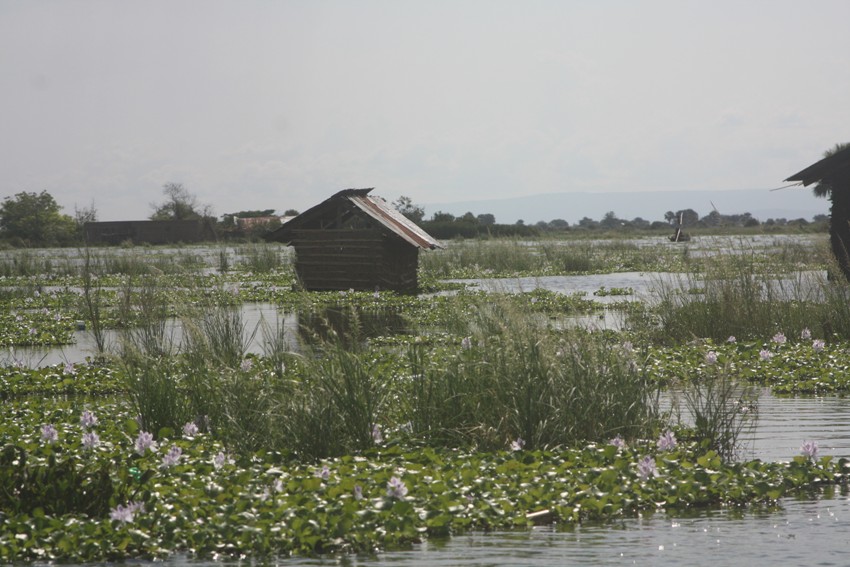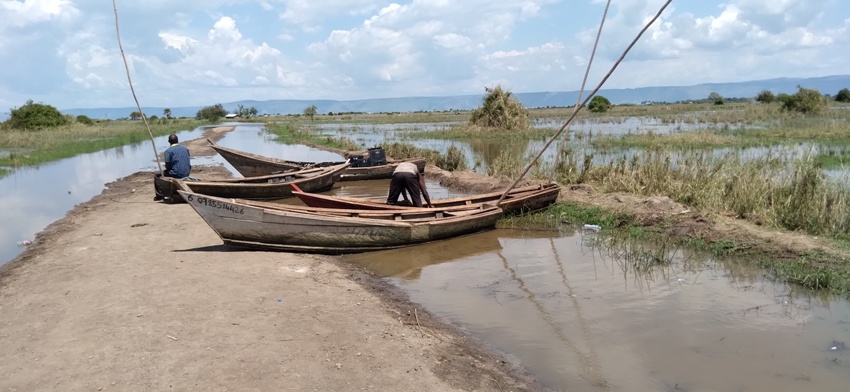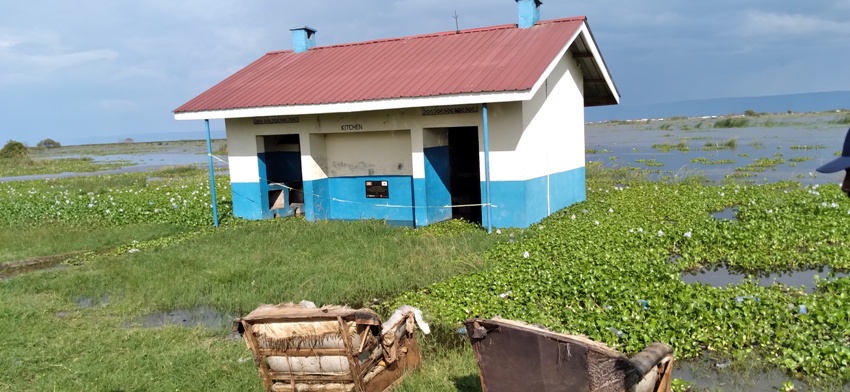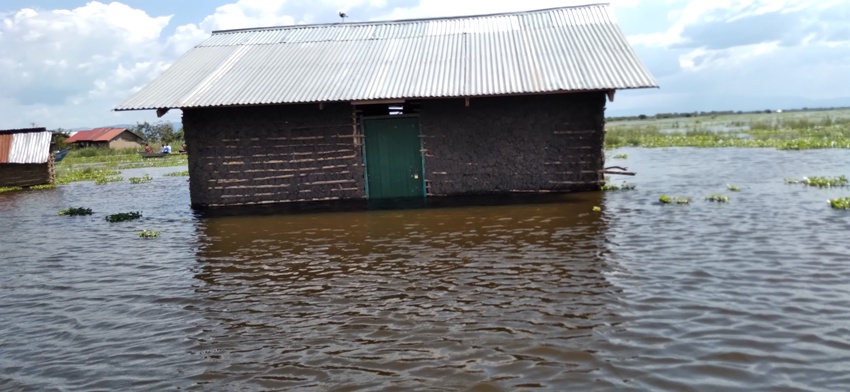By Charles Opolot
NTOROKO
It is now over five months since floods burst from the southern part of Lake Albert on the Ntoroko district side and spilled into communities in three sub-counties of Kanara, Bweramule and Kanara Town Council, leaving over 10,000 people have been displaced.
All the affected live in Rwangara, Katunguru, and Kacwankumu camps, where toilets have been submerged by the flood waters, forcing people to practise open defecation in the water they use.

The disaster preparedness state minister, Musa Ecweru, who visited the area recently, observed that the standard operating procedures (SOPs) have been so difficult to apply in the camp settings. This, he said, poses a high risk of the community contracting cholera and COVID-19.
“There is a problem here in these camps. The SOPs prescribed by the health ministry are so difficult to implement. Many people are sharing one room, meaning that one person can contaminate the entire place. The COVID-19 risk here is real. There is no functional pit-latrine, which also increases the risk of cholera. We could have a cholera outbreak here any time,” he said.

The minister added: “The Ministry of Health must send water guard tablets immediately. And I have seen water is still flowing towards Rwebisengo, which will also compound the resettlement intervention challenge.”
The cause of the flooding is due to Lake Albert bursting its shores in May, spilling its water, fish and water hyacinth to the communities to over 15km offshore.
According to the acting district chairperson, Ben Muthahinga, most of Kanara sub-county has been submerged by water, leaving only Rwangara parish, where flood victims are camping at a health centre because it is on raised ground.

“The people of Kanara sub-county have been surviving on fishing and grazing cattle. Right now, all businesses are paralysed. My people need food, shelter, medication and to be relocated to a safer place,” Muthahinga said.
The Ntoroko District Environment Officer, Herbert Kamuhanda, described the situation as ‘a very serious issue’.
“Even if the water stops spilling from Lake Albert and starts receding, it will take about one to two years to resettle on the original shores,” Kamuhanda said.
All roads have been cut off as water has since May slowly spilled onshore, affecting several sub-counties, including four schools.

“The floods have washed away or submerged several facilities. These include a health centre III, four primary schools, roads and latrines. Water schemes and tap stands have been washed away as well,” said Robert Binta Rwamuhokya, the Senior Planner for Ntoroko District.
“The threat of diseases such as COVID-19, Ebola, cholera and non-communicable diseases that do not have budgets is serious. The central government budgeting process should consider these,” he added.
In a bid to solve the sanitation issue, last month, the Government brought in the district some mobile toilets, but they are still lying at the district headquarters at Kibuuku. The reason for their delayed set up is that the authorities have nowhere to put them because of the flood.



















